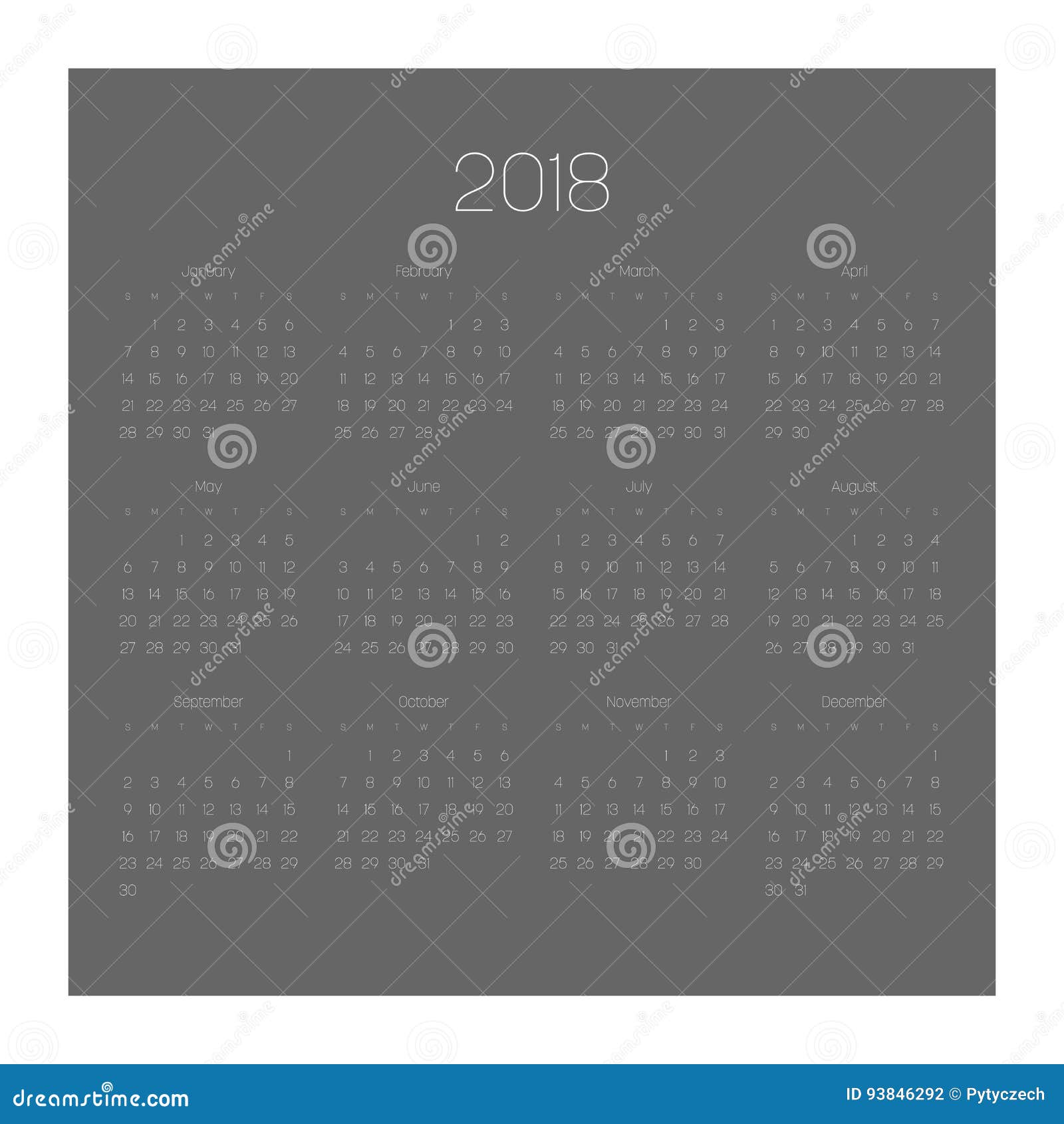
- #2018 CALENDAR BY WEEK NUMBER SERIAL NUMBERS#
- #2018 CALENDAR BY WEEK NUMBER SERIAL NUMBER#
- #2018 CALENDAR BY WEEK NUMBER UPDATE#
- #2018 CALENDAR BY WEEK NUMBER FULL#
- #2018 CALENDAR BY WEEK NUMBER ISO#
The rules for your locale are used to decide whether that week (all 7 days) are classed as 2018 week 53, or 2019 week 1. Only 2 days of that week fall in 2018, the rest of it is in 2019.
#2018 CALENDAR BY WEEK NUMBER ISO#
You're not using the ISO methods ( isoWeek() / isoWeekYear()), so you're relying on your locale's definition of a week, which is running from Sunday - Saturday.ĭecember 30th 2018 is a Sunday, and the first day of a week in your locale. (this'll happen in 2019/2020: December 29th-31st of 2019 are considered as part of Week 1 of 2020) Which means Monday-Wednesday of week 1 may fall in the previous year. For the ISO standard: weeks runs from Monday-Sunday, and week 1 contains the first Thursday of the year. When it comes to standardising week numbers, the preference is to ensure that a week always contains 7 days. you think 1st January is always in week 1, and 31st December is always in week 52/53 - and, to be fair, some wall calendars do show week numbering like that. Return time?.I think you probably have an expectation of how week-numbering works that differs from established practice.Į.g. Public static string GetIso8601WeekAndYearString(this DateTime? time) Int year = weekNum = 52 & d.Month = 1 ? d.Year - 1 : d.Year Ĭonsole.WriteLine("Year: " var d = new DateTime(2012, 12, 31) ĬultureInfo cul = CultureInfo.CurrentCulture January 1st (sat) was the first one week day, and 31st December (sun) was the second one week day. It must be a leap year too.įor example, the year 2000 had 54 weeks. Happens every 28 years when the 1st of January and the 31st of December are treated as separate weeks. Ask the week number for the 1st of January and you'll get back 52 as it is considered part of 2011 last's week.
#2018 CALENDAR BY WEEK NUMBER SERIAL NUMBER#
Januis serial number 39448 because it is 39,448 days after January 1, 1900.
#2018 CALENDAR BY WEEK NUMBER SERIAL NUMBERS#
Remark Excel stores dates as sequential serial numbers so they can be used in calculations. US (Sunday -> Saturday): 52 weeks + one short 2 day week for &. A number that determines on which day the week begins.How many weeks there are really depends on the starting day of your week. Are these extra days counted as separate weeks of their own? So for each year you have at least one an extra day.
#2018 CALENDAR BY WEEK NUMBER FULL#
Each year has 52 full weeks + 1 or +2 (leap year) days extra. There can be more than 52 weeks in a year. This presumes that weeks start with Monday.
#2018 CALENDAR BY WEEK NUMBER UPDATE#
Update The following method actually returns -12-31 which is correct in ISO 8601 (e.g. Please note that there are multiple systems for week numbering, this is the ISO week date standard (ISO-8601), other systems use weeks starting on Sunday (US) or Saturday (Islamic). In the article there is also a simple function to get the correct ISO 8601 week number for the last week of the year. All weeks are starting on Monday and ending on Sunday. Net allow weeks to be split across years while the ISO standard does not.

You can refer to this article in MSDN Blog for a better explanation: " ISO 8601 Week of Year format in Microsoft. Return (time, CalendarWeekRule.FirstFourDayWeek, DayOfWeek.Monday) Īs noted in this MSDN page there is a slight difference between ISO8601 week and. Reuse your yearly calendar by finding years that have the same number of days and start on the same day of the week. If (day >= DayOfWeek.Monday & day <= DayOfWeek.Wednesday) be the same week# as whatever Thursday, Friday or Saturday are,ĭayOfWeek day = (time) If its Monday, Tuesday or Wednesday, then it'll Public static int GetIso8601WeekOfYear(DateTime time)

Week 1 is the 1st week of the year with a Thursday in it. In other words, my problem was that my methods were not following the ISO-8601 standard. The following method actually returns 1 when date is. Int weekNum = (dtPassed, CalendarWeekRule.FirstFourDayWeek, DayOfWeek.Monday) Solution 3: CultureInfo ciCurr = CultureInfo.CurrentCulture Find more info on our main week number page. Solution 2: return new GregorianCalendar(GregorianCalendarTypes.Localized).GetWeekOfYear(date, CalendarWeekRule.FirstFourDayWeek, DayOfWeek.Monday) All weeks are starting on Monday and ending on Sunday.

Return cal.GetWeekOfYear(date, dfi.CalendarWeekRule, dfi.FirstDayOfWeek) Here are some of the methods, that I have tried:įrom the MDSN Library: DateTimeFormatInfo dfi = DateTimeFormatInfo.CurrentInfo is Monday, therefore it should be Week 1, but every method I tried gives me 53. I have Googled a lot and found a lot of solutions, but none of them give me the correct week number for the.


 0 kommentar(er)
0 kommentar(er)
